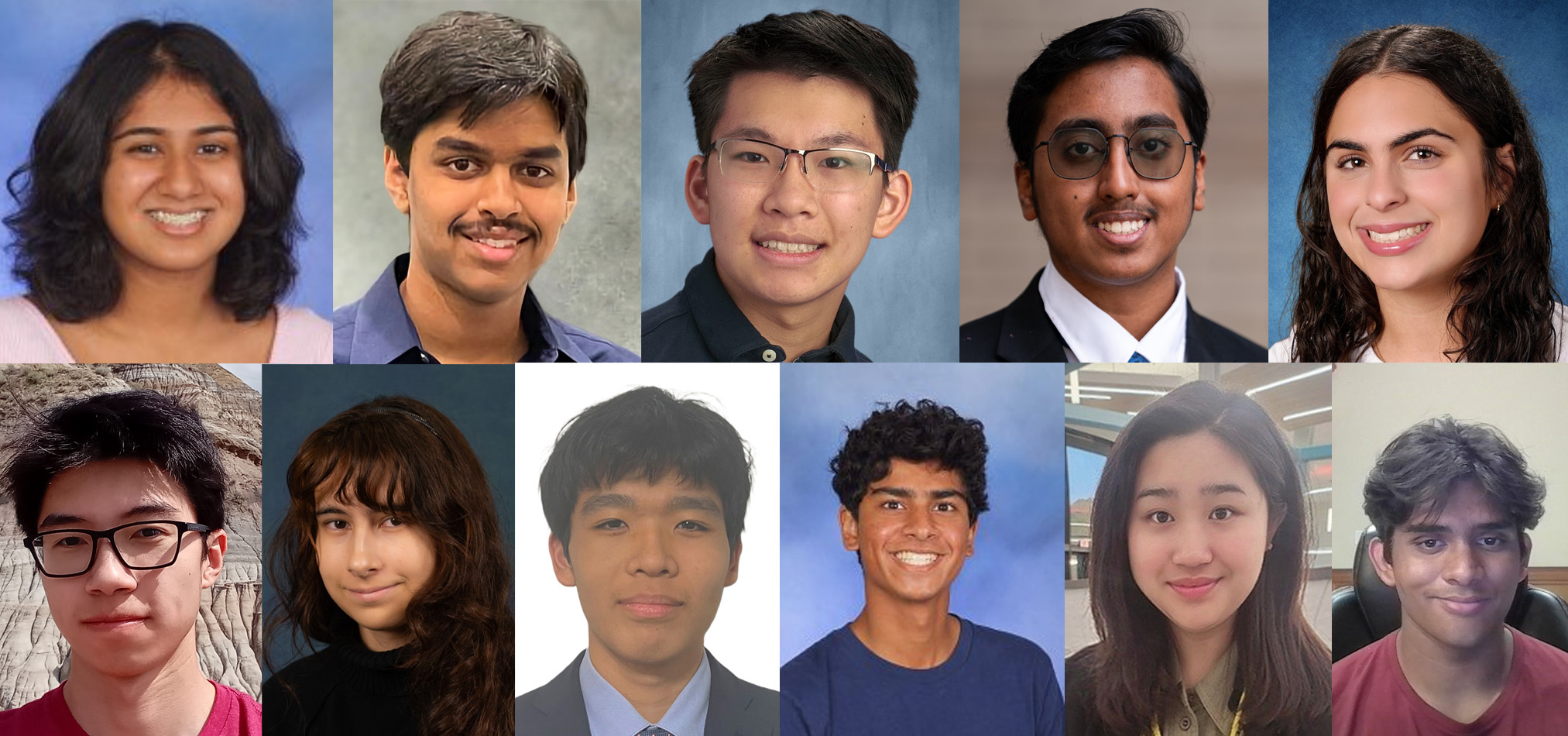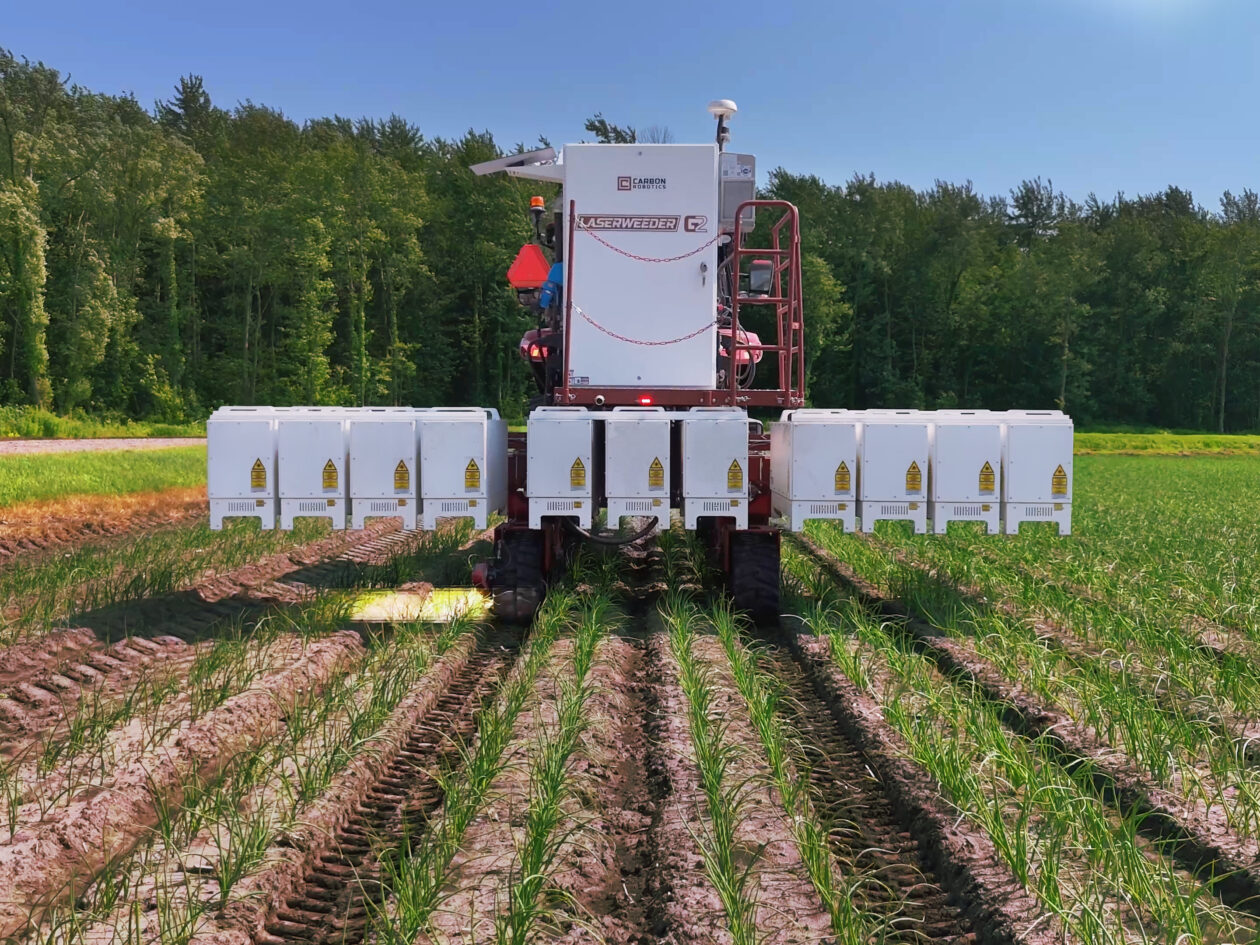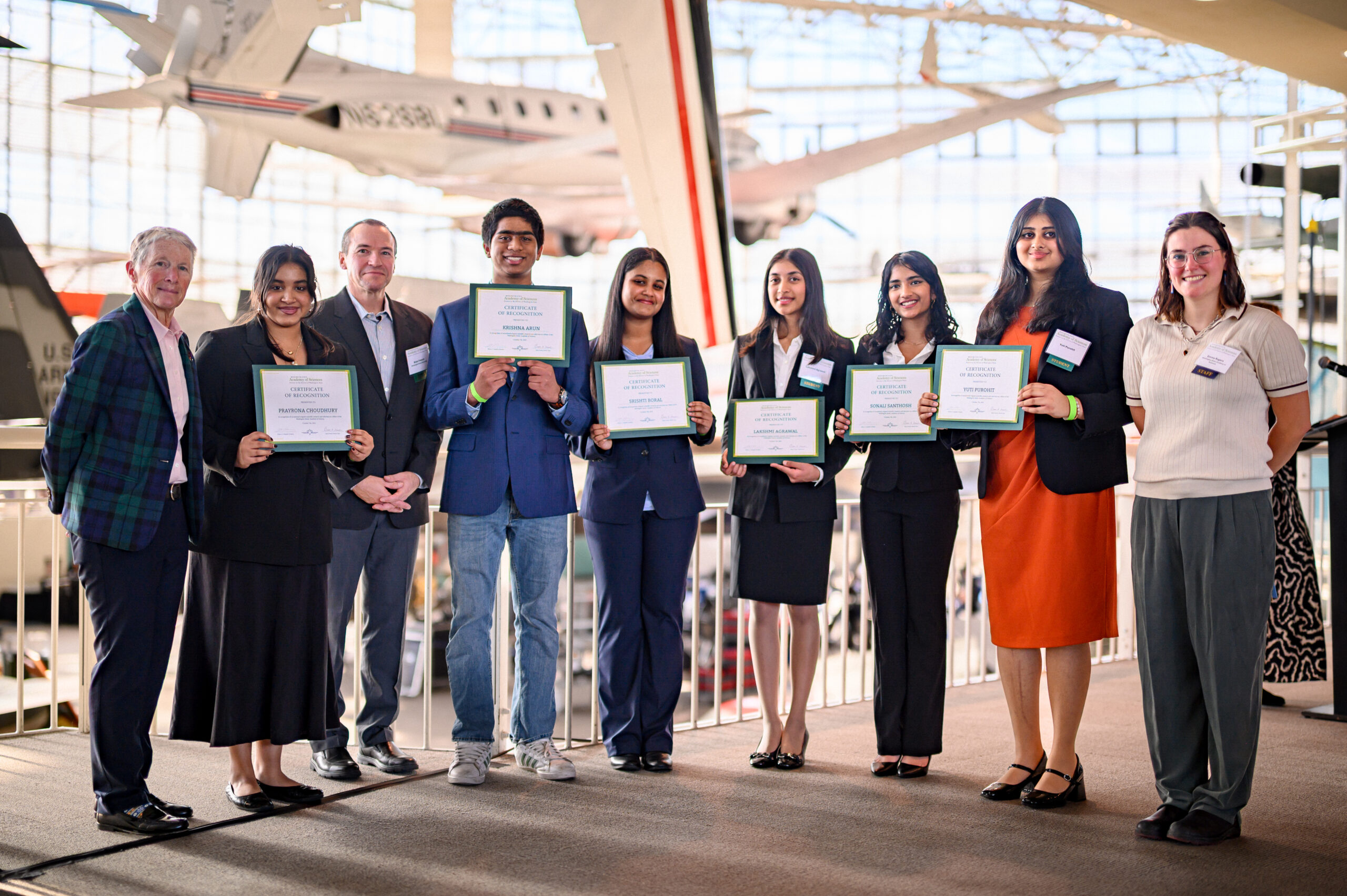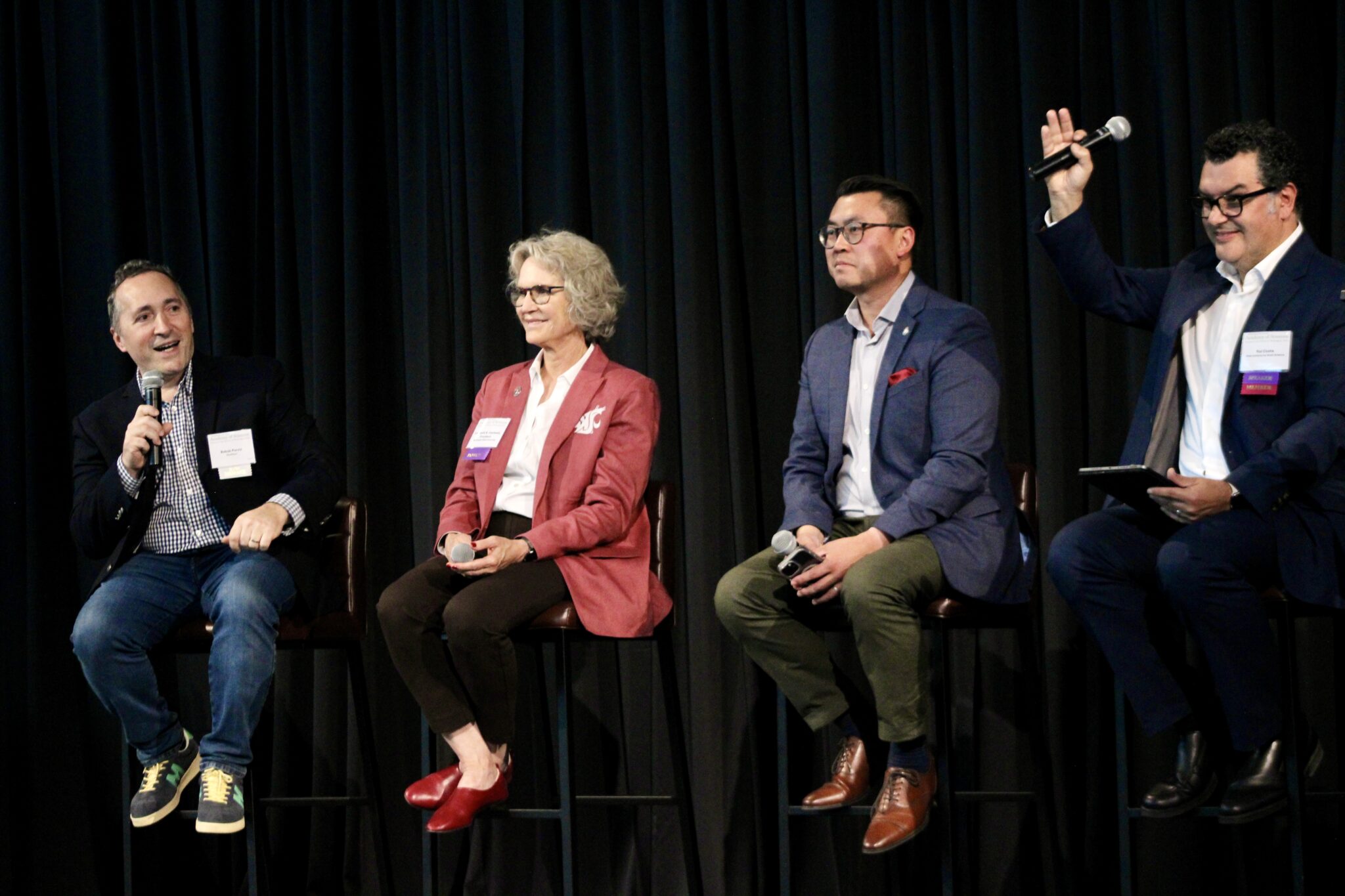
SEATTLE – The Washington State Academy of Sciences is pleased to announce the 2025 Washington State delegates to the American Junior Academy of Science. These 11 students were selected based on original STEM research they conducted while in high school.
“It is a joy to recognize and celebrate these remarkable students,” said Terry McElwain, former WSAS board member, member of the National Academy of Medicine and chair of the 2024 WSAS Education committee responsible for selecting AJAS delegates. “The creativity, passion and depth of scientific inquiry displayed by these students is truly impressive and inspiring. I look forward to seeing all that these students go on to accomplish.”
Since 1963, the American Junior Academy of Science (AJAS), a program of the National Association of Academies of Science, has recognized America’s premier high school students for outstanding scientific research. This honorific society, the only one of its kind in the U.S., both celebrates student success and encourages talented, emerging scientists to pursue careers in STEM fields.
AJAS delegates travel to attend the annual meeting of, and be recognized by, the world’s largest scientific society, the American Association for the Advancement of Science (AAAS). At the meeting, delegates are inducted as lifetime fellows of AJAS. The meeting provides delegates with the opportunity to share their research with their peers and other scientists, meet world-renowned scientists, and network with a diverse community of scientists and policymakers. The 2025 Annual Meeting will be held in Boston, Massachusetts on February 13-15, 2025.
Below are the 2025 delegates and their research project titles. Learn more about their projects here.
Forecasting Domoic Acid Levels from Harmful Algal Blooms along the Pacific Northwest Coast
Anson Chen, TESLA Stem High School
MagGrid: Non-Levitative Electromagnet Propulsion
David (Shangqiu) Li, Camas High School
Design of Active Magnetic field Stabilization for Quantum Gas Experiments
Mir Park, Pullman High School
How Magnetically Suspended Tires Utilizing High-Temperature Superconductivity and Electromagnetism Creates the Most Eco-Friendly Vehicle
Isabella Pinto, Hanford High School
Breast Cancer in Adolescent and Young Women: Investigating Breast Microbiota, Estrogen, and Bacteria Impact on Biomarker Discovery
Rebecca Kim, Charles Wright Academy
ALS-SynAegis: A Molecular Dynamics Study on TDP-43 Aggregation to Prevent Amyotrophic Lateral Sclerosis Onset
Aryaman Rtunjay, TESLA Stem High School
The Future of Efficient, Reliable, and Autonomous Renewable Energy
Nicole Saaman, Hanford High School
LeAF: Leveraging Convolutional Neural Networks for Plant Anomaly Detection and Classification for Farmers with Large Language Models for Natural Language Interaction
Aditya Sengupta, Overlake School
Bilinet: Serum Bilirubin Prediction for Neonates using Segmentation- Guided Neural Networks
Om Shah, Lakeside School
Towards Improved Recognition and Diagnosis of Autism Among Females – A Novel Approach Using Machine Learning
Aanika Tangirala, Lakeside School
SpatioTemporal modeling of the Triple Negative breast cancer tumor microenvironment for in-silico testing of multi-immunosuppressive inhibitors for enhanced immunotherapy
Ajeet Venkatesh, TESLA Stem High School
Related Posts
January 23, 2026
A new initiative from the Washington State Academy of Sciences called Growing with AI will bring together the state’s tech giants and diverse farming community to tackle pressing challenges in the agriculture industry.
October 28, 2025
WAJAS is a WSAS program recognizing exceptional high school students from across the state for outstanding original scientific research and offering opportunities to connect with the research community in Washington and beyond. Fellows were publicly honored alongside Washington's top researchers at the WSAS 20th Anniversary Celebration on October 7.
October 14, 2025
Amid political polarization and uncertain federal research policy, Washington leaders are betting on stability through a unique innovation ecosystem rooted in the state’s institutions and businesses. That was a theme at the 20th anniversary celebration of the Washington State Academy of Sciences, held Tuesday evening at Seattle’s Museum of Flight.


